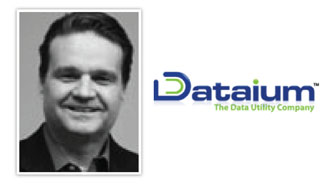Dataium’s Auto Shopper Intensity Index Remains Strong

By subscribing, you agree to receive communications from Auto Remarketing and our partners in accordance with our Privacy Policy. We may share your information with select partners and sponsors who may contact you about their products and services. You may unsubscribe at any time.
NASHVILLE, Tenn. –
No matter what might be happening domestically or elsewhere throughout the globe, Dataium discovered Wednesday that its Auto Shopper Intensity Index has now made four straight months of gains.
However, firm analysts pointed out that the rise of the ASI Index slowed both in February and the first part of March. They figure the climb was impacted by the initial phases of both the Libyan conflict and the Japanese disaster.
Dataium insisted the American consumers’ resilience was clearly evident as the ASI index continued the previous month’s increase despite rising gas prices and economic uncertainty worldwide.
Though consumer demand continued to gain, Dataium noticed shopper changes in regard to segment demand. The firm saw a clear shift from SUVs to sedans, with increasing interest in hybrids.
In fact, analysts noticed the ASI index for SUVs was down 15 percent at the same time the hybrid segment saw a 34-percent increase.
“The American consumer has consistently shown great resilience, demonstrating the ability to overcome adversity and financial strain to fuel our economy,” stated Eric Brown, Dataium’s chief executive officer.
Subscribe to Auto Remarketing to stay informed and stay ahead.
By subscribing, you agree to receive communications from Auto Remarketing and our partners in accordance with our Privacy Policy. We may share your information with select partners and sponsors who may contact you about their products and services. You may unsubscribe at any time.
“In observing automotive shopper behavior over the past several months, we see shoppers reacting at least in the short term to changes in the market place,” Brown continued. “Shoppers then quickly adapt to these changes and return to their previously observed behavioral patterns.”
Among the component metrics that make up the ASI index, analysts also mentioned Internet traffic and automotive lead volume showed the strongest gains.
“It should also be noted that the industry is heading into a traditionally strong selling period and thus some gains in the index may be driven by seasonal trends,” Dataium emphasized.
Dataium reiterated that its index measures overall automotive shopping activity across local dealership websites and other online portals. The firm noted the aggregate is not necessarily representative of the sales revenue for this activity, but is more representative of unit volume.
Through proprietary patented data collection and analytics, Dataium explained that it aggregates and measures billions of auto shopper events among millions of active auto shoppers across a network of diverse automotive websites.
“Changes in demand may still yield lower revenue per unit as consumers adjust for increasing costs elsewhere,” analysts noted.


